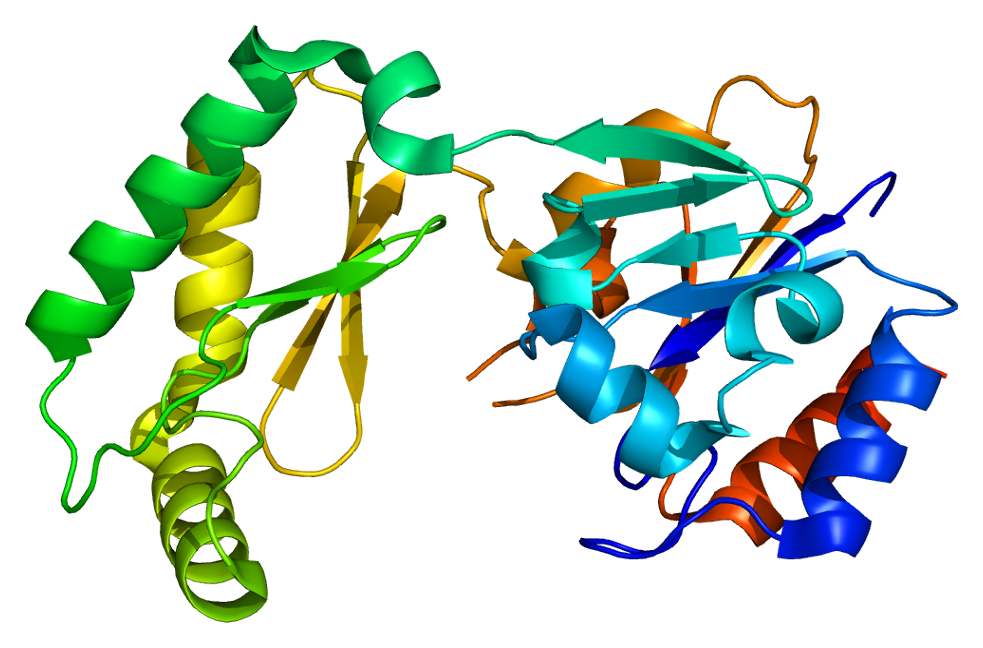PMM2 deficiency
Editor-In-Chief: Prab R Tumpati, MD
Obesity, Sleep & Internal medicine
Founder, WikiMD Wellnesspedia &
W8MD medical weight loss NYC and sleep center NYC
| PMM2 deficiency | |
|---|---|

| |
| Synonyms | Congenital disorder of glycosylation type Ia (CDG-Ia) |
| Pronounce | |
| Specialty | Medical genetics |
| Symptoms | Developmental delay, hypotonia, ataxia, peripheral neuropathy |
| Complications | N/A |
| Onset | Infancy |
| Duration | Lifelong |
| Types | |
| Causes | Mutations in the PMM2 gene |
| Risks | |
| Diagnosis | Genetic testing, biochemical analysis |
| Differential diagnosis | Other congenital disorders of glycosylation |
| Prevention | |
| Treatment | Supportive care, physical therapy |
| Medication | |
| Prognosis | Variable, depends on severity |
| Frequency | Estimated 1 in 20,000 to 50,000 live births |
| Deaths | |
PMM2 deficiency, also known as Congenital Disorder of Glycosylation Type Ia (CDG-Ia) or Phosphomannomutase 2 deficiency, is a rare, inherited metabolic disorder that affects the body's ability to properly attach sugars to proteins and lipids, a process known as glycosylation. This condition is part of a larger group of diseases known as Congenital Disorders of Glycosylation (CDGs), which are caused by defects in the enzymes involved in glycosylation pathways.
Symptoms and Signs
The symptoms of PMM2 deficiency can vary widely among affected individuals but typically include severe developmental delay, intellectual disability, failure to thrive, and various problems with the nervous system, liver, intestines, and coagulation. Affected infants often present with inverted nipples and abnormal fat distribution. Other common features include strabismus, hepatomegaly, peripheral neuropathy, and ataxia. Due to its impact on multiple body systems, PMM2 deficiency is considered a multisystem disorder.
Genetics
PMM2 deficiency is caused by mutations in the PMM2 gene, which encodes the enzyme phosphomannomutase 2. This enzyme is crucial for the early steps of the glycosylation pathway. The disorder is inherited in an autosomal recessive manner, meaning that an individual must inherit two copies of the mutated gene, one from each parent, to be affected. Parents of an individual with an autosomal recessive condition each carry one copy of the mutated gene, but they typically do not show signs and symptoms of the condition.
Diagnosis
Diagnosis of PMM2 deficiency involves a combination of clinical evaluation and laboratory tests. Screening tests may include transferrin isoform analysis, which can detect abnormal glycosylation patterns. Definitive diagnosis is usually achieved through genetic testing to identify mutations in the PMM2 gene.
Treatment and Management
There is currently no cure for PMM2 deficiency, and treatment is supportive and symptomatic. Management may include physical therapy, occupational therapy, and speech therapy to help with developmental delays and motor skills. Nutritional support is also important, and some individuals may require feeding tubes. Regular monitoring by a multidisciplinary team of healthcare providers is essential to address the various aspects of the disorder.
Prognosis
The prognosis for individuals with PMM2 deficiency varies depending on the severity of symptoms and the extent of organ involvement. Early intervention and supportive care can improve the quality of life for many affected individuals. However, the disorder can be life-threatening, especially in severe cases or when not properly managed.
Transform your life with W8MD's budget GLP-1 injections from $125.
W8MD offers a medical weight loss program to lose weight in Philadelphia. Our physician-supervised medical weight loss provides:
- Most insurances accepted or discounted self-pay rates. We will obtain insurance prior authorizations if needed.
- Generic GLP1 weight loss injections from $125 for the starting dose.
- Also offer prescription weight loss medications including Phentermine, Qsymia, Diethylpropion, Contrave etc.
NYC weight loss doctor appointments
Start your NYC weight loss journey today at our NYC medical weight loss and Philadelphia medical weight loss clinics.
- Call 718-946-5500 to lose weight in NYC or for medical weight loss in Philadelphia 215-676-2334.
- Tags:NYC medical weight loss, Philadelphia lose weight Zepbound NYC, Budget GLP1 weight loss injections, Wegovy Philadelphia, Wegovy NYC, Philadelphia medical weight loss, Brookly weight loss and Wegovy NYC
|
WikiMD's Wellness Encyclopedia |
| Let Food Be Thy Medicine Medicine Thy Food - Hippocrates |
Medical Disclaimer: WikiMD is not a substitute for professional medical advice. The information on WikiMD is provided as an information resource only, may be incorrect, outdated or misleading, and is not to be used or relied on for any diagnostic or treatment purposes. Please consult your health care provider before making any healthcare decisions or for guidance about a specific medical condition. WikiMD expressly disclaims responsibility, and shall have no liability, for any damages, loss, injury, or liability whatsoever suffered as a result of your reliance on the information contained in this site. By visiting this site you agree to the foregoing terms and conditions, which may from time to time be changed or supplemented by WikiMD. If you do not agree to the foregoing terms and conditions, you should not enter or use this site. See full disclaimer.
Credits:Most images are courtesy of Wikimedia commons, and templates, categories Wikipedia, licensed under CC BY SA or similar.
Contributors: Prab R. Tumpati, MD

